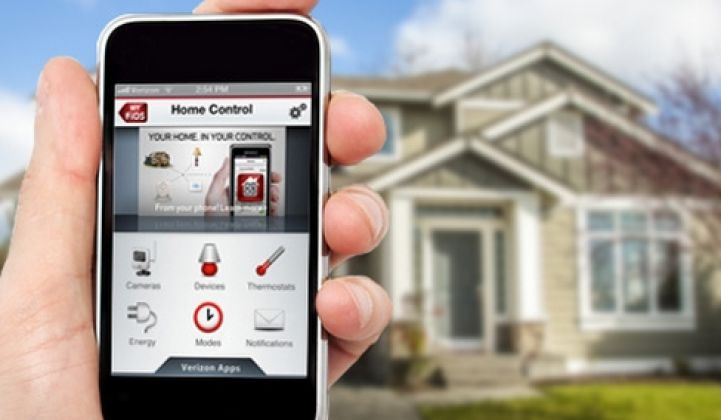The connected home concept may be garnering a lot of headlines, but companies are still figuring out what these offerings should look like.
Verizon Communications stopped selling its Home Monitoring Control service last October. Verizon spokesman Bill Kula confirmed the move, first reported by CE Pro, although customers who currently have the service will continue to receive support.
“We’re revisiting the service to more accurately reflect our vision for the connected home. As technology and consumer expectations evolve, so must our offerings,” Verizon said in a statement. “In the meantime, we continue to provide service and support for current Home Monitoring customers.”
Verizon’s move comes as competition in the connected home space heats up, and the company is likely rethinking its offering for a wider market. At the Consumer Electronics Show, Verizon was reportedly showcasing Lowe’s Iris system at its booth, although there is no indication that a significant partnership may be in the works.
The Home Monitoring and Control service was powered by 4Home’s platform, which was purchased by Motorola in 2010. Google in turn purchased Motorola in 2012, but Google sold off the Motorola Home business last year. According to CE Pro, 4Home was dismantled last year by its current owner Arris.
Verizon is likely shopping for a new platform, perhaps one that is less DIY-focused. Also, Verizon's original platform did not actually offer an alarm monitoring service, as other offerings like Comcast's Xfinity Home do. Verizon's first platform also used a Z-Wave communications protocol, whereas most competitors have chosen ZigBee or Wi-Fi.
Many of Verizon's competitors, including ADT, Cox, Time Warner Cable and Comcast, have chosen iControl for the home automation platform. Last fall, EcoFactor announced a partnership with iControl to bring white-labeled energy management into smart home packages that iControl offers. Of course, the 800-pound gorilla in the living room is Google, which acquired Nest for $3.2 billion earlier this year. It is unclear exactly how Google will use Nest’s hardware and platform, but it is likely to bring a major new competitor to the connected home market.
For energy providers that are part of the connected home ecosystem, the opening means another large player that might be up for grabs. But energy controls companies, whether thermostat makers or software providers, will likely need to have other partners in the ecosystem to be attractive to a company like Verizon.
No matter what the new solution is, we shouldn’t have to wait long to know the details. Verizon said the “next-generation service” is targeted for release later this year.



